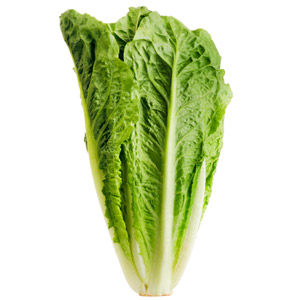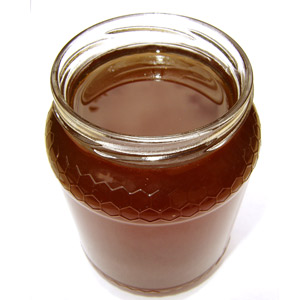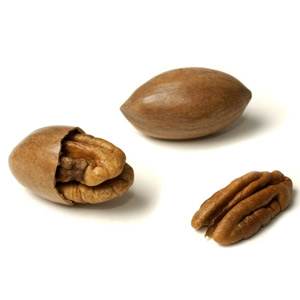Surprising superfoods
In this second extract from his book, 101 Foods That Could Save Your Life, dietitian David Grotto explores some surprising ingredients for a long, healthy life.

You may be pleasantly surprised to find that certain foods lurking in your kitchen cabinets or fridge might just save your life. These unlikely superheroes – some of them once thought to be too decadent to have health benefits and others often considered nutritional weaklings – have demonstrated surprising health benefits that make them worthy of your attention.
Agave Nectar

It’s twice as sweet as sugar and has a low glycaemic index (making a minimal impact on your blood glucose), agave nectar is a honey-like sugar alternative that comes from a cactus and is available in supermarkets. Application of agave in a study on animals found those treated had less inflammation than the control group. Research has also shown that agave has anti-inflammatory properties and can kill certain yeasts, fungi and bacteria. Agave also contains saponin, a group of compounds that can interrupt the growth of cancer cells.
Basil
Studies have suggested that animals given basil to eat enjoy improved circulation and a reduced risk of heart disease. In tests on mice, basil was found to reduce platelet aggregation (the formation of blood clots), which might make it a useful anticoagulant. Rats that were given basil had fewer reactions to known allergens, and the oil extracted from basil has even demonstrated powerful anti-bacterial properties against some of the most antibiotic-resistant types of bacteria.
Chocolate
Chocolate is often blamed for acne, but one recent study reported that women who regularly consumed cocoa, a key chocolate ingredient, had better hydrated skin, with less roughness and scaling. Researchers at the Children’s Hospital & Research Center in Oakland, California, reported that plant chemicals in cocoa called flavonoids reduced the incidence of diarrhoea. Other studies suggest that flavanol-rich chocolate may help to reduce the risk of heart disease, and one study reported that chocolate could lower blood pressure and improve the insulin sensitivity of diabetics.
Cloves
Though not rich in any one nutrient, cloves contain the plant substance eugenol, a natural painkiller that has also been found to kill bacteria and reduce inflammation. One study reported that a few grams of cloves per day boosted all participants’ insulin function and lowered their LDL ‘harmful’ cholesterol and glucose levels. Clove oil has been used for centuries as a painkiller for toothaches and may be helpful in dentistry as a local anaesthetic.
Coffee

Caffeine intake was associated with a reduced risk of Parkinson’s disease in a study of over a million men; another study of 41,836 post-menopausal women reported a reduced risk of cardiovascular disease among regular coffee drinkers. A daily coffee has been attributed to cutting the risk of alcoholic cirrhosis by 20 per cent, and four cups per day by 80 per cent. It’s also been claimed that elderly men who drank three cups of coffee a day had better memories than those who didn’t.
Cos (Romaine) Lettuce

Cos reigns supreme in nutrition compared to other lettuces. It has five times more vitamin C than iceberg lettuce, and is rich in lutein and zeaxanthin, which are thought to prevent macular degeneration in the eyes. Barbara J Rolls, PhD, from Penn State University, recommends beginning a meal with a salad containing lettuce, to reduce calorie intake later on in the meal. Cos contains salicylic acid, which has analgesic and anti-inflammatory effects, and also inhibits the cyclooxygenase 2 (COX-2) enzyme, which has been attributed to certain types of cancers.
Figs
Figs contain psoralen, a plant chemical found to be helpful in treating skin conditions. Figs can help regulate digestion, as they are one of the best fruit sources of fibre. That same fibre helps reduce calorie intake by giving the sensation of being full for longer. Though rich in natural sugar, figs have been linked to a reduced risk of adult-onset diabetes, by slowing the digestion and absorption of sugars in foods.
Honey

Honey can reduce triglycerides (blood fats that can contribute to heart disease). An animal study found honey helps protect intestinal cells from damage and helps fight colitis. Long before anti-bacterial creams were developed, honey was used to prevent bacteria from taking residence in wounds. There is even a pharmaceutical product derived from honey that claims to be very effective in treating wound infections.
Pecans

Researchers from New Mexico State University reported that subjects who added up to 30 pecan halves a day to a low-fat diet reduced their levels of LDL ‘harmful’ cholesterol by twice as much as those who did not add pecans. Test subjects’ levels of HDL or ‘good’ cholesterol also rose.
Wasabi and Horseradish
Plant compounds called isothiocyanates, found in wasabi, may help prevent blood clots. One study reported that lung tumours resulting from melanoma were less inflamed in mice that were fed wasabi, and both wasabi and horseradish have been used to kill human cancer cells. Wasabi has even been known to prevent tooth decay and kill the bacteria H. Pylori – associated with stomach ulcers.
101 Foods That Could Save Your Life by David Grotto
(£10.99, Bantam Books)
To buy this book on Amazon, click
Subscribe to our magazine
Food stories, skills and tested recipes, straight to your door... Enjoy 5 issues for just £5 with our special introductory offer.
Subscribe
Unleash your inner chef
Looking for inspiration? Receive the latest recipes with our newsletter